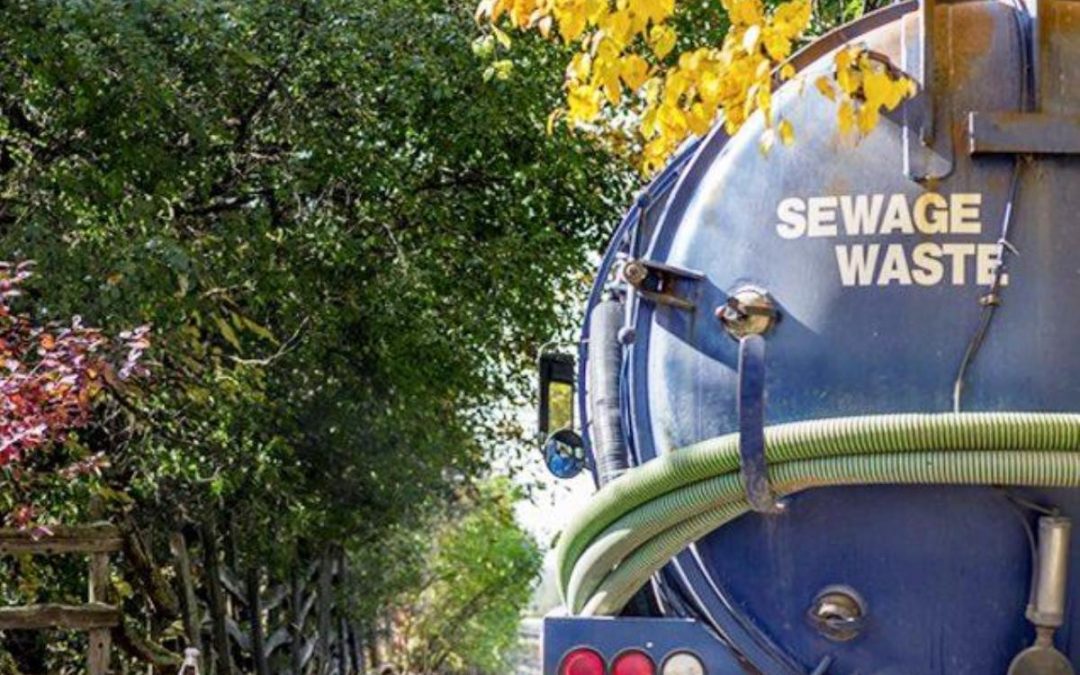Things about Reclaim Waste
Things about Reclaim Waste
Blog Article
Reclaim Waste Can Be Fun For Everyone
Table of ContentsA Biased View of Reclaim WasteThe Main Principles Of Reclaim Waste What Does Reclaim Waste Do?Unknown Facts About Reclaim WasteLittle Known Facts About Reclaim Waste.
Check out the kinds, occurrences, and forms of fluid waste. Domestic sewer waste refers to the waste and products from a property sewage-disposal tank. This type of waste is developed by people in houses, colleges, and other buildings. This only consists of septic systems that have a drainpipe field. The correct administration and disposal of domestic sewage waste need fluid waste to be transferred to a sewer treatment plant where the appropriate techniques and tools are related to detoxify and deal with waste.
Industrial waste typically includes potential threats, such as flammable products or a blend of fluid and strong waste items, and requires an extra sophisticated and in-depth disposal process. The disposal of commercial waste commonly includes the filtration of waste prior to transportation to guarantee risk-free and appropriate disposal. Hazardous waste is produced from byproducts and overflow of industrial processes and manufacturing.
This kind of waste can not make use of the very same sewage administration transport or processes as septic or industrial fluids. The industrial waste monitoring procedure needs the examination and screening of fluid waste prior to it goes through the disposal process (liquid waste disposal). Runoff waste is the liquid waste that comes from overflow and excess stormwater in extremely inhabited locations or cities
Runoff waste can cause contamination and flooding otherwise taken care of correctly. Learn a lot more about sewage system cleaning and waste monitoring. Making certain proper waste administration can avoid disasters and lower environmental harm. Both individuals in property setups and experts in commercial or manufacturing markets can take advantage of recognizing the processes and laws of fluid waste administration.
Some Known Details About Reclaim Waste
Call PROS Solutions today to discover our waste management and disposal solutions and the appropriate means to look after the fluid waste you produce.
(https://reclaimwaste1.wordpress.com/2024/11/12/efficient-liquid-waste-disposal-in-melbourne-reclaim-wastes-expert-solutions/)Do you recognize what takes place to your water when you end, purge the bathroom or drain the washing equipment? No? Well, it deserves knowing. This supposed 'wastewater' is not only an important source yet, after therapy, will certainly be launched to our land, waterways or the ocean. Made use of water from commodes, showers, baths, kitchen area sinks, laundries and industrial processes is called wastewater.

water made use of to cool down equipment or clean plant and devices). Stormwater, a kind of wastewater, is overflow that streams from farming and city areas such as roof coverings, parks, yards, roadways, paths and rain gutters into stormwater drains, after rain. Stormwater streams untreated straight to neighborhood creeks or rivers, eventually reaching the sea.
Some Known Factual Statements About Reclaim Waste
In Queensland, the majority of wastewater is treated at sewage therapy plants. Wastewater is moved from residential or industrial sites through a system of sewers and pump terminals, called sewage reticulation, to a sewer treatment plant. Regional federal governments construct, maintain and run most sewage treatment plants. Operators are licensed under the Environmental Protection Act 1994 to release cured wastewater at an acceptable you could check here ecological standard into rivers.
The Department of Natural Resources encourages regional federal governments about handling, operating and keeping sewerage systems and therapy plants. In unsewered locations, city governments might need householders to mount specific or household sewer therapy systems to treat residential wastewater from commodes, cooking areas, bathrooms and laundries. The Department of Natural Resources authorizes using house systems when they are verified to be reliable.
Most stormwater gets no treatment. In some new neighborhoods, therapy of some stormwater to get rid of trash, sand and crushed rock has actually begun utilizing gross toxin traps. Wastewater treatment occurs in four phases: Removes strong issue. Bigger solids, such as plastics and various other objects wrongly released to drains, are eliminated when wastewater is travelled through displays.
Wastewater after that moves into large tanks where solids work out and are removed as sludge. Oil and scum are skimmed from the surface area. Utilizes little living organisms understands as micro-organisms to break down and eliminate continuing to be liquified wastes and great fragments. Micro-organisms and wastes are incorporated in the sludge. Removes nitrogen and phosphorus nutrients that might trigger algal flowers in our waterways and intimidate aquatic life.
The Facts About Reclaim Waste Revealed
Nutrient elimination is not readily available at all sewer therapy plants since it needs pricey specialized equipment. It is coming to be a lot more common in Queensland. Clear fluid effluent produced after therapy may still contain disease-causing micro-organisms. If this effluent is released right into waterways such as rivers or the sea, the micro-organisms will ultimately pass away out.

Most wastewater flows into the sewage system. Under the Act, regional governments administer authorizations and permits for ecologically relevant activities (Ages) involving wastewater releases that might have a regional influence.
The smart Trick of Reclaim Waste That Nobody is Talking About
Otherwise, samples are taken for lab evaluation. Frequently many tests are required to establish the degrees of each of the different contaminants such as oils, heavy steels and pesticides in water. Surveillance gives valid info concerning water quality and can confirm that permit problems are being satisfied. The info acquired through surveillance offers the basis for making water top quality choices.
Report this page